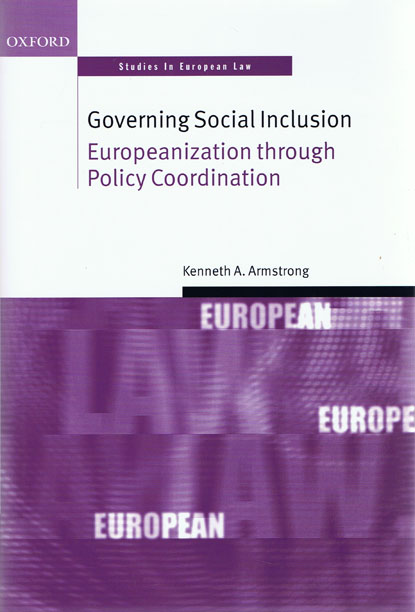
In May 1997, European leaders met in Amsterdam to agree a further round of revisions to the founding Treaties of the European Union. Embedded within its new social policy provisions was an objective for the EU and the Member States to combat social exclusion.
By 2000, a new governance technique - the 'Open Method of Co-ordination' - had emerged as the means of taking forward this objective, utilising a combination of EU-level objective-setting and decentralised policy-making. May 1997 also saw a new Labour government sweep to power, promising constitutional change - including devolution of powers to Scotland, Wales and Northern Ireland - and pledging to tackle poverty and social exclusion.
Strategies to tackle social exclusion are now conducted in a multi-level context. On the one hand, the EU is seeking to steer national systems through the open method of co-ordination. On the other hand, in the United Kingdom, it is not only central government policies that aim to tackle social exclusion, but also the devolved administrations and local government.
It is not only the levels of governance that have changed but also the techniques and the actors involved. New forms of partnership have emerged at EU, national and sub-national levels between governmental and non-governmental organisations. All of which raises challenges to orthodox democratic constitutionalism, and possibilities for democratic experimentalism.
In all of this, law, and in particular, European Union law, seems to have been decentred in favour of new normalising practices associated with social indicators and the mapping of exclusion.
By exploring this changing governance context, the book addresses the impact of new modes of governance on the conduct of social inclusion strategies in the EU and UK.